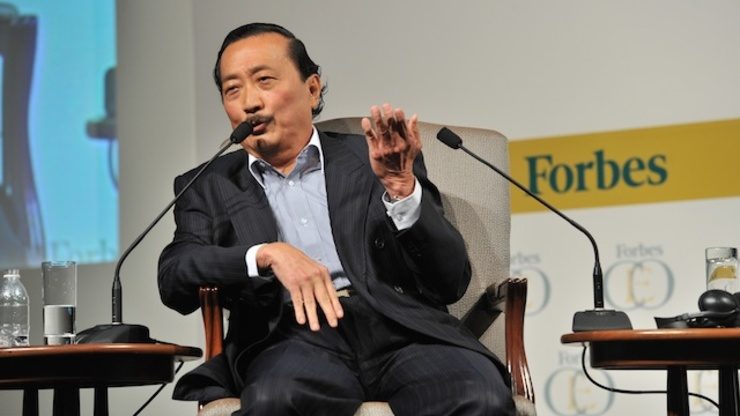SUMMARY
This is AI generated summarization, which may have errors. For context, always refer to the full article.

SINGAPORE – Is corruption avoidable for businesses wishing to enter emerging markets?
At the Forbes Global CEO Conference here on Wednesday, October 29, Vincent Tan, Founder of the Berjaya Corporation Group of Companies said his company does not bribe public officials but hires “local consultants who get things done.”
“We don’t bribe, no corruption,” he said. “But we pay local consultants to get things done for us. At least we get a receipt.”
The Berjaya Group owns Berjaya’s Philippines outfit, Berjaya Philippines Inc (BPI), which owns the Philippines Gaming Management Corp (PGMC), Perdana Hotel Philippines Inc, and Berjaya Auto Philippines Inc, among others.
While Tan did not explicitly speak of its company’s practices in the Philippines, he did say he is “very happy” with his investment in the Philippines, compared to Vietnam where his company got “mixed results.”
“When we invested in the Philippines in the early 1990s, we went through a lot of problems. But now we are very happy with the Philippines,” he said.
Tan said that if the practice of bribing government officials has to stop, government should pay its officials and employees well. He cited Singapore as an example.
“Salaries have to be increased to the level of Singapore so a government official must feel he is not paid much less than someone in the private sector,” he said, adding that even the most noble government officials may be tempted to accept bribes to feed their families. “But politicians need the courage, the wisdom to do that.”
Varying opinions
Tan’s comments sparked a debate among other CEOs on the panel with him.
Binod Chaudhary, president of Nepal-based Cinnovation-Chaudhary Group and Nepal’s first billionaire, was more cautious in his statements.
“It is hard to generalize corruption at all levels. In emerging markets there is something you might like to call ‘facilitation cost.’ From lower to mid-level companies, they may be handled by consultants and PR officials. But at a senior level, it depends on how you want to position yourself as a company,” he said.
Chaudhary acknowledged that in countries “still going through political crosshairs,” businesses are “expected to work with political parties and support them,” but said it’s up to companies to determine how they want to be portrayed.
“If you can establish yourself as a company that is transparent and ethical, even they [governments] can say, ‘Look at these corporations that can function [without corruption],” he said. “You may have to pay a short term price but you will benefit in the long term.”
Myanmar billionaire Serge Pun, however, was more direct, emphasizing that “corruption is not a way of life.”
“I don’t believe that,” he said, before encouraging his fellow business players to “take corruption as a disease” that can be eliminated. – Rappler.com
Add a comment
How does this make you feel?
There are no comments yet. Add your comment to start the conversation.